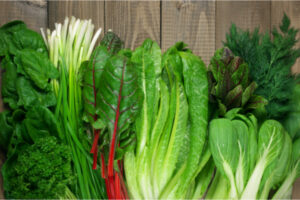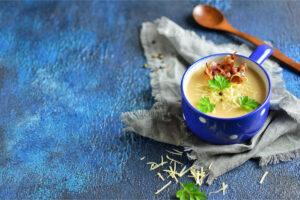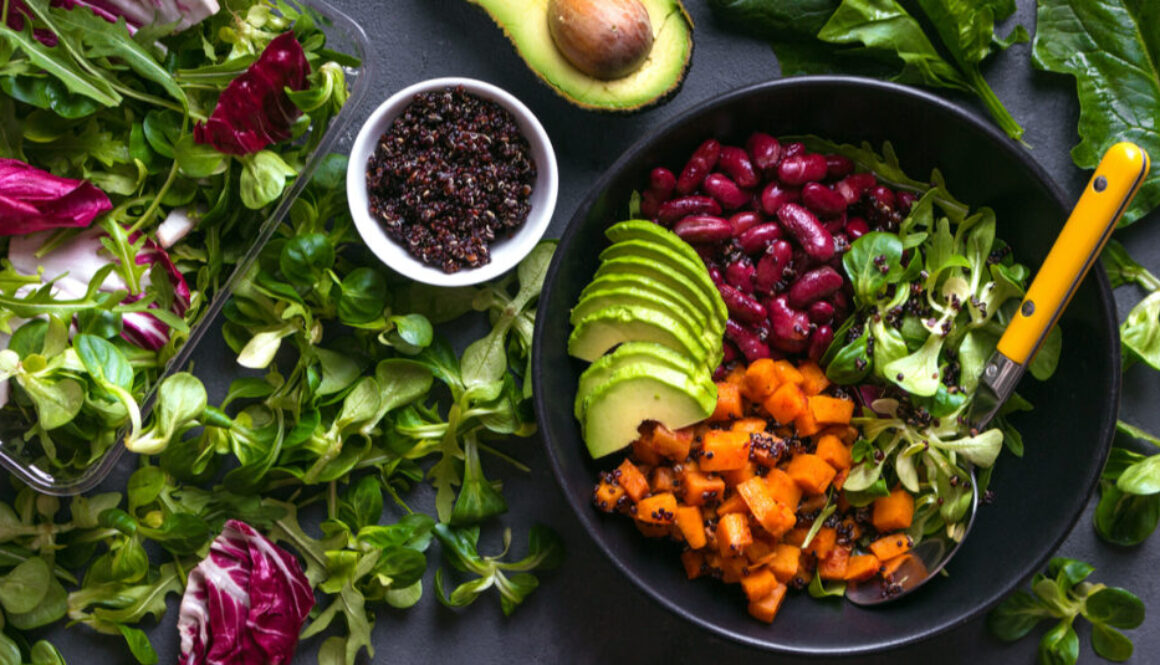Seasonal Eating With Chinese Medicine
How to Stay Healthy and Balanced with Food
Traditional Chinese Medicine (TCM) offers a refreshingly simple philosophy for health and wellness — alignment with nature. We TCM practitioners believe that by living in harmony with the natural rhythms of the seasons, we can achieve better health, improved digestion, strong immunity, and a balanced flow of energy (or Qi). A key practice in TCM is seasonal eating, which involves choosing foods that energetically and nutritionally support your body based on the time of year and of course, where you live since the seasons vary according to where you are on the planet.
This guide covers how seasonal eating, according to the principles of TCM, can help you stay healthy, energetic, and in tune with the world around you. Let’s explore how food and seasonal transitions come together to create harmony within the body.
The Basics of TCM and Seasonal Eating
First, TCM centers around balance. The concepts of hot, cold, wet, and dry dictate how certain foods and environments impact the body. Each season in TCM corresponds to specific elements, organs, and energies. The goal is to eat foods that balance the natural forces (yin and yang) during each season.
Here’s a quick look at how TCM characterizes each property:
- Hot foods (e.g., ginger, cinnamon, peppers): Add warmth to the body and counteract cold conditions.
- Cold foods (e.g., watermelon, cucumber): Cool the body and relieve excessive heat or dryness.
- Wet foods (e.g., soups, stews, fruits): Hydrate and moisten, especially useful in dry seasons.
- Dry foods (e.g., baked goods, crackers): Counter excessive dampness in the body.
By adjusting the foods you eat to balance the weather and climate of a season, you support digestion, maintain the appropriate internal temperature, and keep your body’s energy well-balanced.
We must remember however, that the other thing to consider is our own inner “weather” or constitution. Not only are we taking into account the environment around us but also what is going on within us. Therefore we may need to adjust the seasonal diet to our own needs.
Eating for Each Season
Each season comes with its own opportunities to refuel your body and build resilience. Below is a look at the seasonal principles in TCM, along with food examples and tips for seasonal eating.
Since we are now in the season of spring, let’s start here.
Spring (Wood Element)

Organ focus: Liver and Gallbladder
Seasonal energy: Uplifting, fresh, slightly unpredictable
Common imbalances: Irritability, sluggish digestion, allergies
Spring is a time for new growth and renewal, correlating to the liver and gallbladder. According to TCM, this is the season to release stagnation and detoxify the body, preparing it for the active months ahead. A sour flavor profile is believed to stimulate liver detoxification.
When we don’t help the liver and gallbladder to release stagnation we can become literally bogged down in body and mind. The digestion slows down which allows toxins from the liver to release into the body making us feel lethargic, angry, irritable, have joint pain as well as have food intolerances or allergies. Allergies are directly related to liver becoming overwhelmed with toxins and cannot process allergens effectively.
Key Principles:
- Encourage new energy flow with light, fresh, and green foods.
- Focus on foods that support cleansing yet are gentle on digestion.
Foods to Eat in Spring:
- Greens: Spinach, dandelion greens, baby kale, and sprouts are cleansing and refreshing.
- Citrus Fruits: Oranges, grapefruit, and lemons provide the sour essence TCM advises.
- Fermented Foods: Kimchi, sauerkraut, and apple cider vinegar help balance the liver.
- Warming Ingredients (Early Spring): Small amounts of ginger or spring onions to combat lingering cold weather. Lightly cooked or steamed foods.
Tip for Spring Eating:
Avoid overeating heavy or fried foods, as they can stress the liver while it’s working to “spring clean.” Try steaming or lightly sautéing your meals for easier digestion.
Spring is the best time to clean up the diet and do a dietary cleanse by eating bitter greens, avoiding heavy foods, and taking herbs that help to remove toxins from the liver, intestines and kidneys. Since it is the time of the liver it is really the best time to do a dietary cleanse. Many people to a cleanse in January in the new year to start the year off fresh, but it is not an easy time to do that, especially if you live in a cold part of the world. Eating raw foods in winter is not recommended but is the best when those bitter greens are sprouting.
Here is an article in Experience Life magazine about spring cleansing for health in the spring. https://experiencelife.lifetime.life/article/fresh-start/
Summer (Fire Element)

Organ focus: Heart and Small Intestine
Seasonal energy: Hot, active, outward-moving
Common imbalances: Overheating, restlessness, poor sleep
Summer is the season of expansion, warmth, and activity. It corresponds to the heart and small intestine, with a natural emphasis on joy, vitality, and emotional balance. The season’s long days and heightened heat naturally call for cooling, hydrating foods.
Key Principles:
- Focus on cooling and hydrating.
- Balance energy with mildly bitter flavors, which help release heat and clear toxins.
Foods to Eat in Summer:
- Cooling Fruits: Watermelon, cucumber, cantaloupe, papaya, and strawberries help cool the body.
- Leafy Greens: Refreshing choices like arugula, lettuce, and watercress are ideal in salads.
- Bitter Vegetables: Dandelion greens, asparagus, or kale for clearing heat.
- Minimal Seasoning (Raw or Cold): Lightly seasoned meals are easier on the digestive system in hot weather.
Tip for Summer Eating:
Enjoy foods at room temperature or slightly chilled. Avoid ice-cold drinks and meals, as they can dampen digestive fire (yang energy), even during the hot season. Smaller, more frequent meals are less taxing to the digestive system. Avoid hot, greasy or spicy foods that can create excess heat. Herbal teas like mint or chrysanthemum are cooling.
Late Summer (Earth Element)
Organ focus: Spleen and Stomach
Seasonal energy: Damp, heavy, transformative
Common imbalances: Bloating, fatigue, brain fog
Late summer, a lesser-recognized season in TCM, is a transitional period where energy shifts. The focus during this time is strengthening the stomach and spleen, which govern digestion and the body’s ability to transform food into nourishment. In order to stay balanced this is another time to adhere to seasonal eating to help with digestion.
Key Principles:
- Eat comforting, slightly sweet foods that support digestion.
- Focus on foods that are mild in temperature and aid in calming the stomach.
Foods to Eat in Late Summer:
- Root Vegetables: Sweet potatoes, carrots, turnips, and squash ground and nourish the stomach.
- Whole Grains: Rice, millet, and oats are great for supporting the spleen.
- Seasonal Fruits (Balanced Sweetness): Pears, peaches, and figs for nourishment without excess dampness.
- Soups and Stews (Warm but Light): Bone broth or lightly seasoned soup keeps digestion balanced.
Tip for Late Summer Eating:
Chew your food thoroughly and eat slowly to optimize digestion during this transitional period. Avoid excessive raw, cold, or sweet food that burden digestion. Stick to warm, simple meals that comfort and nourish.
Autumn (Metal Element)

Organ focus: Lungs and Large Intestine
Seasonal energy: Dry, contracting, introspective
Common imbalances: Dry skin, coughs, constipation
Autumn is a time for contraction and preservation, correlating with the lungs and large intestine. The focus is on boosting immunity, staying hydrated, and protecting the body from dryness.
Key Principles:
- Prioritize moistening foods to counteract the season’s dryness.
- Incorporate pungent flavors to open the lungs.
Foods to Eat in Autumn:
- Moistening Foods (High Water Content): Pears, apples, persimmons, and white mushrooms. Warm soups and broths.
- Warming Spices (Mild Pungency): Cinnamon, cloves, and turmeric support lung function.
- White Vegetables (Lung Support): Cauliflower, onions, and turnips.
- Nuts and Seeds (Rich Oils): Walnuts, pine nuts, and flaxseeds to nourish and protect.
Tip for Autumn Eating:
Avoid overly spicy or fried foods, as they can overstimulate the system and worsen dryness in this season.
Winter (Water Element)

Organ focus: Kidneys and Bladder
Seasonal energy: Cold, still, inward-focused
Common imbalances: Fatigue, cold hands/feet, low immunity
Winter represents rest, storing energy, and self-reflection—it’s a deeply yin season. It connects to the kidneys and bladder, which require warmth and nourishment. This is the season for hearty, comforting foods that bring internal heat.
Key Principles:
- Strengthen and warm the body with nutrient-dense foods.
- Create balance with salty flavors, which are grounding in winter.
Foods to Eat in Winter:
- Warm Soups and Stews (Yin Nourishment): Miso soup, bone broth, and lentils.
- Root Vegetables and Tubers (Earthy Energy): Beets, radishes, and garlic.
- Protein-Rich Foods (Essential Energy): Eggs, fish, and legumes stabilize energy.
- Seaweed (Kidney Support): Nori, kelp, and wakame nourish the body’s water element.
Tip for Winter Eating:
Use slow-cooking methods such as braising or simmering to preserve warmth in your meals. Always enjoy your meals warm or hot to maintain your yang energy during the cold season.
Final Thoughts on Seasonal Eating in TCM
Seasonal eating is more than just eating fresh produce; it’s about tuning into nature’s rhythms and nourishing your body in harmony with the world around you. TCM’s principles provide a thoughtful, intuitive approach to choosing foods that don’t just fill your stomach but fuel optimal health throughout the year.
Every season offers a chance to recalibrate and support key organs and energies, helping you stay resilient and balanced. Think about your diet as a changing conversation between your body and the seasons—when it gets cooler, eat warming soups; when it’s scorching, turn to refreshing fruits and hydrating teas.
There is also another connection to keep in mind and that is your own constitution. Each person has their own mini universe that is unique to them. Some people tend to be colder or hotter for instance, so it is important to take this into consideration when eating with the seasons because all winter foods are not for everyone.
Want to learn more about implementing these principles into your life? Consider exploring food therapy or consulting with a TCM practitioner to tailor seasonal eating to your unique constitution. By making small but intentional changes to your daily meals, you may find yourself feeling more vibrant, energetic, and connected to nature.
I can help you with all of this and it is not too late to do a cleanse or just clean up your diet. Reach out to me for more information with a free 15 minute consultation. Check out my health coaching page here https://donnabunte.com/health-coaching/ and see what it’s all about.
health@donnabunte.com or 203 253 9885
Happy spring and eat your greens!
Donna
